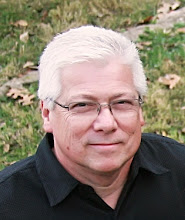We have known the story since our days as young Sunday-Schoolers: The Story of Zacchaeus. Let me try to add a bit more insight to what we know about the "wee little man."
It was in the city of Jericho where Zacchaeus lived and worked. Oh, how he worked! He was the local tax-collector for the Roman Empire. Yes, the people of Jericho were accustomed to paying taxes--it was just part of life. However, Zacchaeus had an arrangement with the Roman government that he would collect what belonged to Caesar, and then he would take as his own whatever he could extort from the public, often taking much more than he should have. To be called a "tax-collector" put Zacchaeus in the league with con-artists and thieves, as far as the people of Jericho were concerned. To say that he was hated by the citizenry is to put it mildly.
In the city where Joshua had called down the walls with the shouts of the people of Israel and the blasts of trumpets, Zacchaeus was soon to experience a similar shaking in his own life. The man known as "Yeshua", the same name as Joshua from hundreds of years before, had come to town. We know Him as Jesus and His name means salvation. The crowds quickly enveloped Jesus as He passed through town on His way to another place in the Holy Land. In fact, the crowds were so intense that the diminutive, yet notorious, Zacchaeus had to climb a sycamore-fig tree to catch a glimpse of the now famous Son of Man. It was curiosity that brought Zacchaeus up the tree, but it was love that would bring him down.
As Jesus passed underneath the tree, He was fully aware that a lonely man needed redemption. He knew that the most-hated rich man in Jericho was seeking something that he had never experienced--compassion. And so Jesus looked up and called the tax-collector by name--the name that He had known since the foundation of the world:
"Zacchaeus!"
"Come down right away!"
"I must come to your house today!"
Something that traditional religion implies is missing in this account. Jesus did not ask anything of Zacchaeus, other than his acceptance. He didn't condemn Zacchaeus for his greed and thievery. He didn't demand repentance of the publican. Jesus didn't explain to the curious little man that He could not fellowship with sinners, that He couldn't embrace someone so ungodly. No, Jesus simply saw a "son of Abraham" who needed redemption, and He called his name. We know from the account in Luke 19:1-9 that Zacchaeus immediately descended from the tree, and he immediately repented of his sins and promised better restitution than the Law demanded from thieves. Again, Jesus did not demand these actions of Zacchaeus; Zacchaeus demanded them of himself in order to destroy anything that would separate him from the Savior of his soul. Somehow, Zacchaeus recognized that the Man who supernaturally knew his name was the One who could save his derelict soul. Jesus simply shouted "Zacchaeus!" and the walls that separated the sinner from the Savior fell in the time it took for a little man to climb down from a tree.
Unfortunately, even in this day of grace, we expect that Jesus will condemn us for our sins and expect complete repentance and rehabilitation before He will come to our house to break bread with us. The truth is this: until He comes to live in us by His Holy Spirit we will not and cannot rehabilitate ourselves. It is impossible! Only by the Spirit of holiness that Jesus places in His believers may the believers ever deny sin and turn away from it. We hear Him call our names, and then, with His help, we begin to tear down the walls that have separated us from His fellowship all these years. There is no condemnation! Just as with Zacchaeus 2000 years ago, Jesus does not see our sins--He only sees us. We are what He is after. Once we know Him, we will look for ways to make things right; once we have enjoyed His friendship, we will no longer look for ways to sin--we will look for ways not to sin.
Paul summed it up in Romans 8:1-2:
"Therefore, there is no condemnation for those who are in Christ Jesus, because through Christ Jesus the law of the Spirit of life set me free from the law of sin and death."
Monday, March 7, 2011
Subscribe to:
Comments (Atom)






